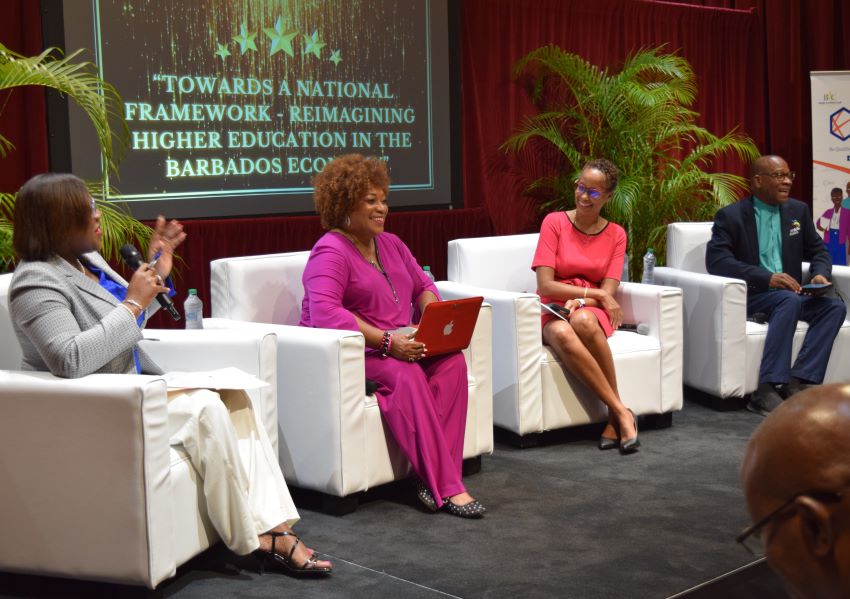
The Cabinet of Barbados has approved the National Qualifications Framework for Barbados.
The announcement was made by Executive Director of the Barbados Accreditation Council (BAC) Lisa Gale, as she led off opening remarks for the BAC’s 20th Anniversary Panel Discussion at the Grande Salle of the Central Bank of Barbados on Thursday, October 10th, 2024.
The discussion was held under the theme: ‘Towards A National Qualifications Framework – Re-imagining Higher Education in the Barbados Economy’.
Mrs. Gale told the packed auditorium that Minister of Education, Technological & Vocational Training, Kay McConney had shared the news earlier the same day, noting that the approval represents a major milestone.
This framework will be managed by the Barbados Accreditation and Qualifications Authority (BAQA), the new entity which will replace the BAC and manage the framework and the National Qualifications Register.
In acknowledging the work of many stakeholders over the years in contributing to the current version of the framework, she said the new stakeholder body first revisited the framework about two years ago.
“We came together and we spoke about what the current educational needs are, what national the qualifications framework would look like, what it can do, what are the deficiencies in the existing draft one…how we can improve it etcetera, and we made a few tweaks.”
She says those tweaks included the acknowledgement of notional hours, which became even more apparent during the COVID-19 pandemic. “We subsumed three sectors into two – now to be referred to as academic and technical and vocational sectors.”
“We also acknowledged the number of persons who were without certification in Barbados and we recognised that lifelong learning had a little bit more meaning – not that it wasn’t contemplated before – but we thought that the one access level was insufficient. THE BQCF is an 8-level framework with two access levels.”
Mrs. Gale said the Cabinet approval of the BQCF, BQR and the BAQA is just the first part of what will eventually be an extensive, comprehensive process of public education and sensitisation, ahead of the eventual formal establishment of the new framework.
